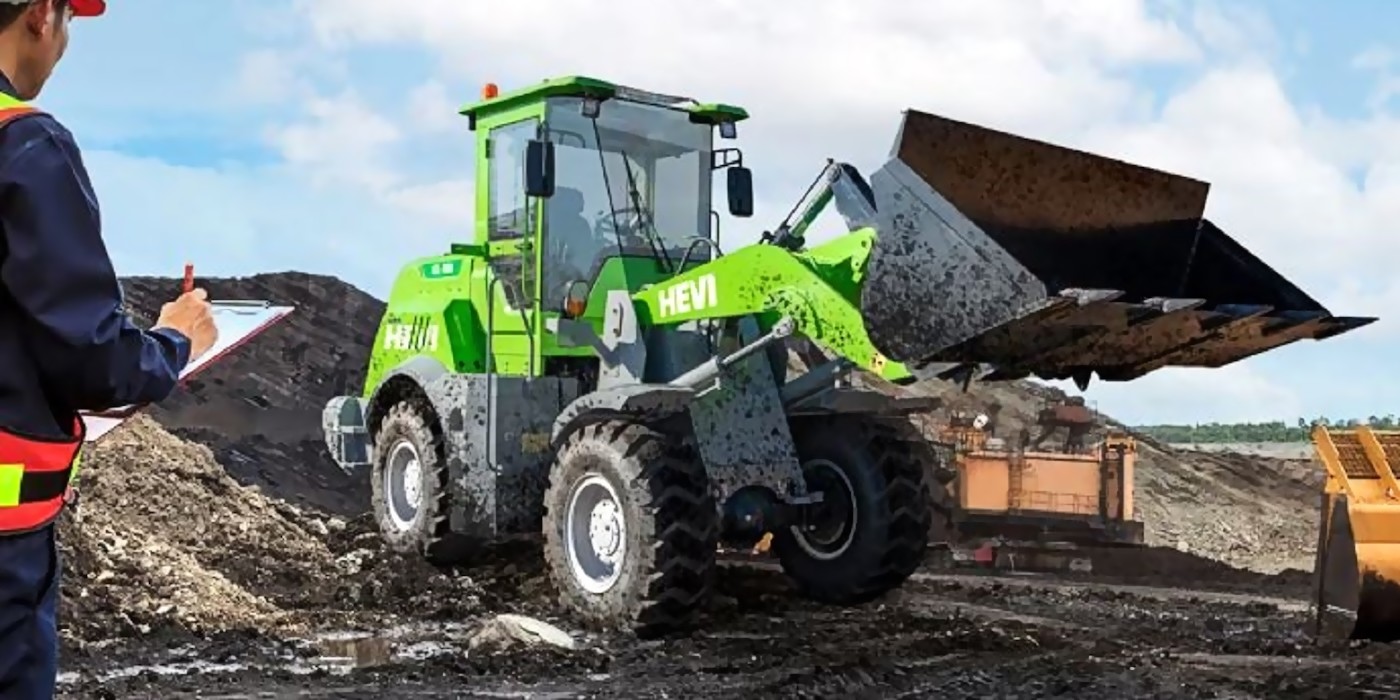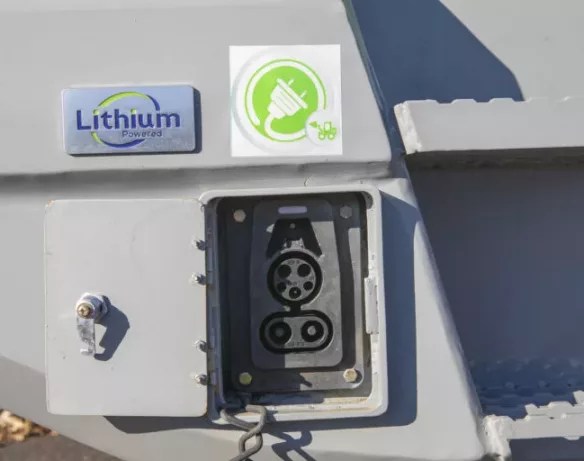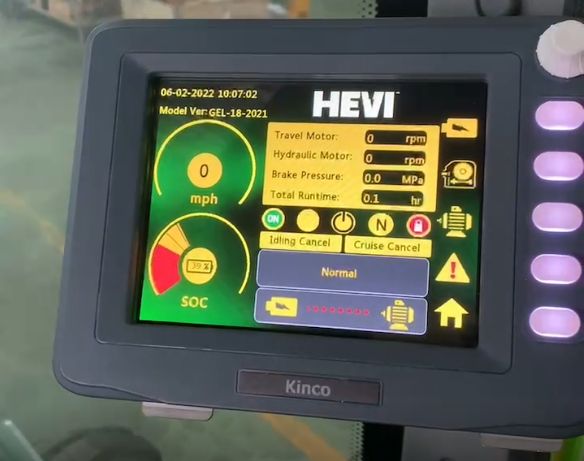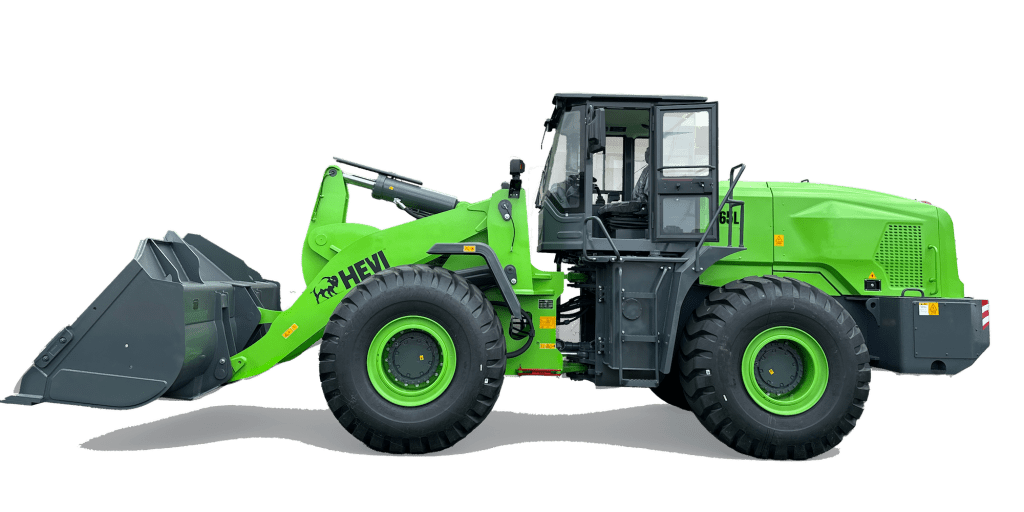
With an operating weight scratching at 50,000 lbs., the recently revealed HEVI H65L is the largest battery electric wheel loader available in the North American market today.
The new HEVI H65L has a rated load capacity of more than 14,300 lbs., a bucket capacity of 5.5 cubic yards, and more than 47,000 pound-feet of breakout force. That compares favorably with the new L120 Electric from Volvo CE (which, itself, has an operating weight starting at 41,887 lbs.) and other similarly sized electric equipment from China.
“This marks another major achievement for us, as we introduce North America’s largest all-electric wheel loader,” explains Raymond Wang, CEO of the HEVI equipment brand. “The purpose-designed H65L meets customer demands with extended runtime, faster charging, and cutting-edge display technology.”
More data, faster charging


That “cutting edge” display provides operators real-time information about the H65L’s operational status, including battery levels, pressure readings, and more.
On the “range” side of the equation, HEVI says the H65L’s 423 kWh battery pack is good for up to nine hours of continuous operation – enough for two shifts before it needs to be plugged into a J1772/CCS connector. About 2.5 hours of DC fast charging at 120 kW is good enough to charge the batteries from 10 to 80% by my math (HEVI claims 0-100% in four hours). Overnight AC charging is also available, but the real win here (I think) is the noise reduction compared to diesel.
HEVI says operators in the climate-controlled cab of the new electric wheel loader will experience noise levels less than 75 decibels under full load, similar to that of a vacuum cleaner or dishwasher running. The sound level when standing 15 feet away from the HEVI loader is 67 decibels (about as loud as the conversation in a restaurant, or just 1/8 the noise levels found at a conventional construction site).
“Building on our legacy of zero-emission, all-electric industrial vehicles, the game-changing H65L delivers high performance while offering zero emissions, reduced operating and maintenance costs, lower noise levels, and enhanced operator comfort,” continues Wang. “Added together, this is an important expansion of our fast growing industrial electric vehicle portfolio that strengthens our competitive position and, we believe, will help us build shareholder value.”
Electrek’s Take

HEVI is one of the few construction equipment companies with an all-electric lineup, and they’re planning to roll these out through a growing network of national equipment dealers – a move that, I think, will help give them an edge over companies trying a D2C approach.
That said, one of the biggest obstacles to broader fleet electrification remains availability of electrified assets. A fleet like PITT Ohio that wants to order 100 electric Volvo Trucks might have to wait eighteen months or more, when a comparable diesel order may take six months to fill. The same is true on the equipment side, and HEVI’s eventual success or failure may depend on whether or not it can get its products into the hands of customers fast enough.
SOURCE | IMAGES: HEVI, via PR Newswire.
